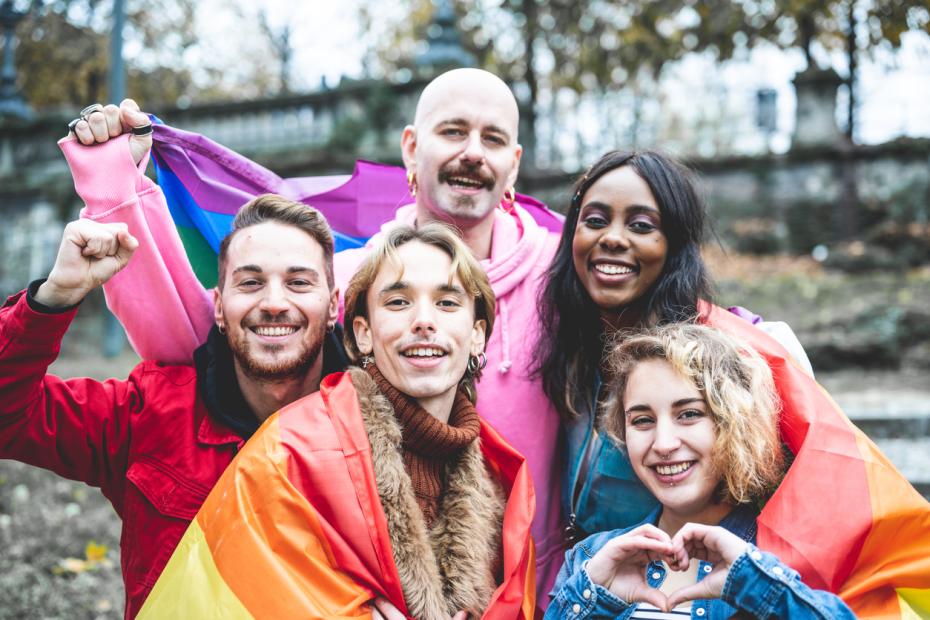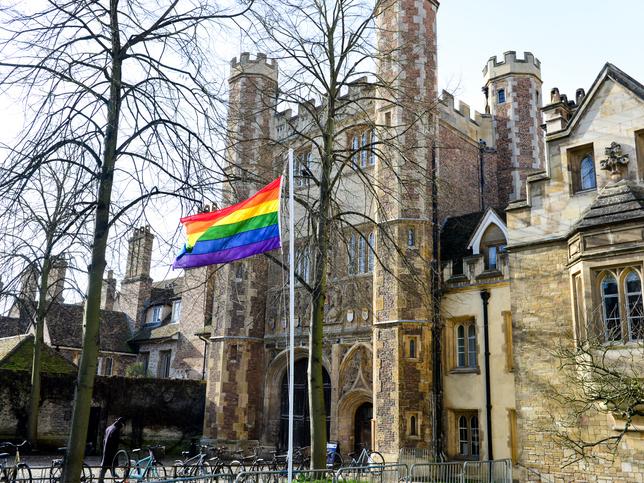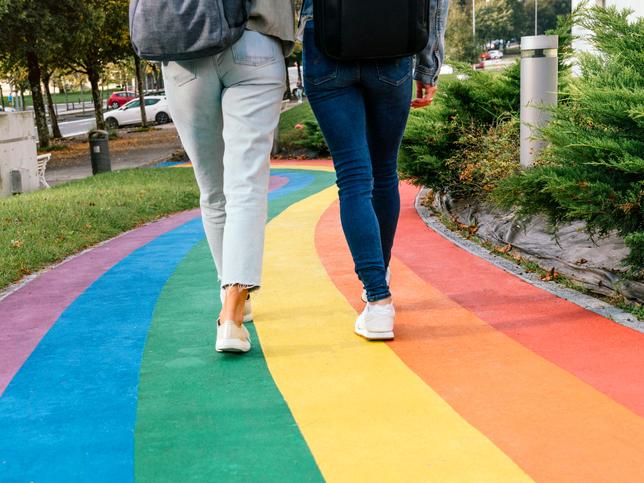
Work ‘with’ not ‘on’: making social research more inclusive for LGBT+ people
How to develop inclusive social research practices that involve carrying out work ‘with’ LGBT+ participants, rather than ‘on’ them, by Paul Willis
You may also like
Popular resources
Creating safe spaces for LGBT+ people is both a contemporary societal issue and key priority in social research.
In the UK, reported hate crime against LGBT+ continues to increase, and the UK government reports lower levels of life-satisfaction for LGBT+ citizens when compared with the general population (even lower for trans people). The research relationship between LGBT+ people as “participants” and academics as “the researcher” is infused with power dynamics that can’t be separated from the wider social climate we live in. We can think of the research encounter as a microcosm in which LGBT+ participants bring their concerns and anxieties about discriminatory or exclusionary treatment reflected across other interactions with professionals, including health, housing and social care workers. In short, LGBT+ participants need assurances before the research relationship is initiated that “this is a safe space for me to be me”.
“Doing no harm” is an ethical bedrock at the heart of social research. Doing inclusive research is part of this agenda in promoting, rather than compromising, the well-being of groups who are often the subject of research. This is especially important in the context of research problems and questions about people who historically have experienced widespread marginalisation and exclusion.
In this article, I identify four key ways of making social research more inclusive for LGBT+ people. A core requirement is making research a safe encounter in which wider social and historical harms are not reproduced. These reflections are grounded in my experience over the past 13 years in leading and contributing to research on the health and social care needs of older LGBT+ people in England and Wales.
1. Initiate problem setting ‘with’ (rather than ‘for’) those affected by the research problem
Opening conversations with LGBT+ individuals and community groups earlier about potential areas for research development centres the voices of LGBT+ people as experts by lived experience. Rather than replicating past patterns of doing “research on” LGBT+ groups, this standpoint requires us as researchers to set the research agenda in and through conversation with LGBT+ groups and organisations where their input is valued alongside what we know from published research. As an example, in 2010, my research team and I at Swansea University began new research into inclusive long-term care provision for older lesbian, gay and bisexual people in Wales. Our focus on care home provision was born out of discussions with members of the Wales Older LGBT Network (sadly no longer running) on what they considered to be the most important issues for research.
- What LGBTIQ+ allyship means in academia
- Belonging: why it is the next step on the equity, diversity and inclusion ladder
- Supporting LGBTQ+ aspiring leaders in universities
Our first funded study did not focus on care concerns directly relevant to trans people. This direction came from trans stakeholders who were part of the same group clearly telling us that they did not want our research to give tokenistic mention to issues specific to trans people (or worse, talk about LGBT+ groups but not mention trans people in the findings). To avoid tagging the “T” on the end of the “LGB”, we made a commitment to develop a separate research stream focusing on the health and social care needs of trans people in Wales, in which the experiences of older trans people would not be lost in the wider fog of LGBT+ research. This was funded as the Trans Ageing and Care study in 2016. A less risky strategy would be to carve out separate work packages that focus specifically on trans and gender-diverse experiences in larger LGBT+ studies.
2. Make research spaces safe and validating environments
At the heart of the Trans Ageing and Care study was a commitment to co-designing and co-delivering the study with trans individuals – making sure the study was conducted with the people concerned, rather than on them. This included the recruitment of trans community members to undertake the paid and contracted role of co-researchers who co-facilitated all interviews with trans participants.
This enabled us to create a “trialogue” – a safe and affirming interview space involving a trans community member, the researcher and the participant. This alleviated the more orthodox power dynamics present in researcher-participant encounters and created an environment (often in participants’ homes) in which the starting points for all research interviews was some shared experiences among the group.
3. Take a co-produced approach with LGBT+ groups and support greater participation in research
“Co-production” is currently a popular buzzword in health and social research circles that carries many different meanings and methods. It can be a messy and unpredictable approach, and it shouldn’t be seen as the only way to do good research. But it can yield valuable insights into the doing of research and how to improve it.
In 2016, I had the privilege of being part of a research team using co-production to explore the inclusion of older LGBT+ people across six care homes in England (funded by the Comic Relief “Care Home Challenge”, hosted by Middlesex University and led by Trish Hafford-Letchfield). A team of LGBT+ community members worked with us as advisers to carry out practice and policy audits across participating care homes.
Community advisers quickly showed us that our initial approach would not work – they couldn’t have conservations with care home staff about LGBT+ inclusion when a lot of staff members didn’t know what they were talking about or why it mattered. Based on their advice, we changed tack so the community advisers first led awareness-raising sessions about this topic across care homes before carrying out audit activities and having more meaningful conversations with staff and residents. This change required us as a team of academics to learn from our community partners and to accept our first approach wasn’t feasible – a position of humility that’s not always easy to accept for experienced researchers and academics.
4. Inclusive research means not just focusing on what goes wrong in LGBT+ people’s lives
It’s also important to be attuned to the positive, fulfilling and rewarding life experiences and relationships that many LGBT+ individuals enjoy. There’s much to be learned from these experiences that can produce powerful evidence for addressing patterns of inequality, discrimination and exclusion. Examples include the careful framing of research questions that invite exploration of topics beyond problem-saturated stories and the crafting of research tools such as interview guides and questionnaires to carve out space for capturing affirming and ordinary (as well as out-of-the-ordinary) accounts of LGBT+ life.
On a final note, doing inclusive research with LGBT+ people means unpeeling the LGBT+ acronym. When using this acronym, there is a danger of seeing LGBT+ people as a single group with shared or similar experiences. Inclusive research begins with the recognition that while there may be some shared experiences, LGBT+ citizen’s lives are shaped by a range of intersecting identities and inequalities across disability, age, racial and ethnic differences, and gender. One way forward is to start with the recognition that the LGBT+ label may be good enough for initiating research agendas but it can’t be the end point for developing research questions, methods, findings and outputs that really speak to the different identities and life experiences contained in this catch-all term.
Paul Willis is an associate professor in social work and social gerontology in the School for Policy Studies, University of Bristol and he identifies as gay/queer. He is a senior fellow of the NIHR School for Social Care Research and head of the school’s Centre for Research in Health and Social Care.
If you found this interesting and want advice and insight from academics and university staff delivered direct to your inbox each week, sign up for the Campus newsletter.




